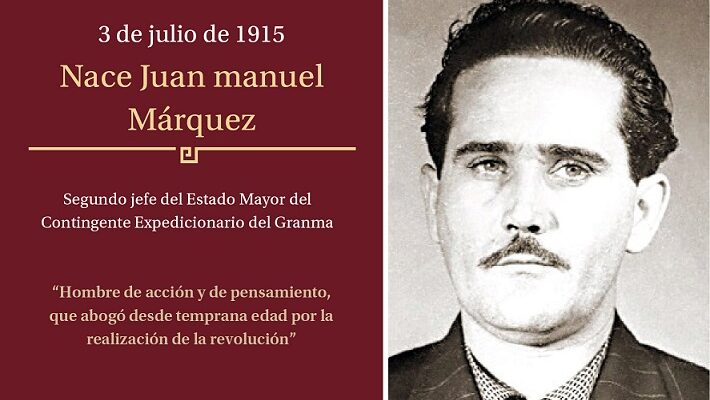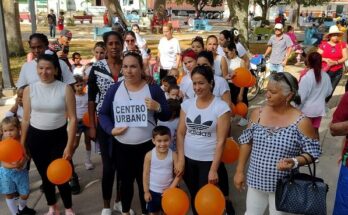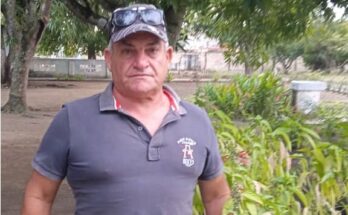July 2025 – Journalist, revolutionary fighter, and second-in-command of the Granma expedition, Juan Manuel Márquez Rodríguez, was born on July 3, 1915, in the Havana neighborhood of Santa Fe. At the age of 15, he was already known for his confrontation with the Machado regime, which sentenced him to prison terms, first in the Castillo del Príncipe and then in the Presidio Modelo on the Isle of Pines, despite being underage.
A man of action and thought, he began his political struggles from radical positions, joining the Student Left Wing and the Brotherhood of Young Cubans, both inspired by the first Communist Party. He served as president of the Marianao Institute Student Association for many years, and all the municipality’s high school students held him in deep admiration.
With democratic freedoms restored in Cuba, the people elected him councilman in 1944 with a large vote. It is said that upon taking office, he ensured that the municipality had a library, that there was close ties between schools and museums, and that a music band was established.
Juan Manuel Márquez presented motions condemning the assassination of Congressman Jesús Menéndez, and when Yankee marines desecrated the statue of José Martí in Central Park in 1949, he rebuked his colleagues in the Municipal Assembly: «Are we going to remain impassive in the face of this affront?»
With his pen and words as efficient weapons of combat, Juan Manuel Márquez practiced combative journalism. From the Marianao newspaper El Sol, he warned of the danger posed to the country by Sergeant Fulgencio Batista, who had become a colonel, calling him an adventurer sold out to the worst causes. He also broadcast the program «Shame Against Money» on the Havana radio station C O C O with a large audience.
To combat the Batista dictatorship, he joined the group led by Fidel Castro in Mexico to prepare the Granma expedition, on which he arrived as second-in-command. And after the battle of Alegría de Pío, he was viciously pursued by the dictator’s troops until he was detected and assassinated on December 15, 1956.
Evoking him after the triumph of January 1, 1959, the leader of the Cuban Revolution, Fidel Castro, called him «my comrade in the organization of July 26th in exile» and described him as a «formidable orator» who «brought the crowd to its feet with his vibrant words (…) He is not here today, but the work he began is here.»





